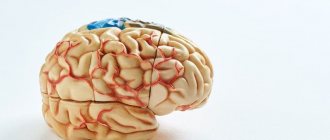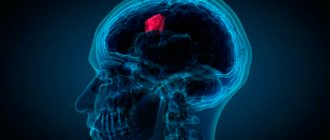What do you think about when you hear a phrase like “mental retardation”? This is probably accompanied by not the most pleasant associations. Many people's knowledge about this condition is mainly based on television shows and films, where real facts are often distorted for the sake of entertainment. Mild mental retardation, for example, is not a pathology in which a person should be isolated from society. Consequently, we often meet such people, but it is very difficult for the common man to draw the line between a healthy person and a mentally retarded person.
Introduction
As doctors say, mental retardation is a disease, the main symptom of which is either an acquired (child under 3 years old) or congenital decrease in intelligence. At the same time, the ability to think abstractly is practically absent. But the emotional sphere does not suffer with this disease: patients can feel hostility and sympathy, fun and sadness, grief and joy. However, people with mental retardation do not experience such multifaceted and complex feelings and emotions as healthy people. It should also be noted that this disease is not able to progress. Mental retardation is a stable level of underdeveloped intelligence. Although there have even been cases of its increase over time due to the influence of training, society, and upbringing.
Causes of mental retardation
Human intelligence is determined by both environmental and genetic factors. Those children whose parents are diagnosed with mental retardation are already a risk group. They are more susceptible to developing mental disorders, although genetic transmission as such is extremely rare. Despite the development of genetics and certain successes in this area, the causes of 70-80% of cases of disease cannot be established. Most often they are detected in particularly severe cases. But we still suggest understanding the most common factors that provoke the occurrence of such a condition.
Prenatal causes
The cause of this condition is often chromosomal abnormalities, genetic, and nervous diseases. Mental retardation is also caused by congenital diseases caused by cytomegalovirus, rubella virus, and HIV. Parental use of drugs, alcohol, and exposure of the fetus to toxins lead to the birth of children with mental retardation. Exposure to radiation, methylmercury, lead, and chemotherapy drugs also sometimes leads to such consequences.
Classification of the disease
With mental retardation in children, not only cognitive but also psychological functions of the brain suffer. Therefore, it is difficult for the patient to be in organized groups. Mild degrees of pathology are difficult to diagnose before the age of one, since at this time the child does not yet know how to talk and analyze information.
The degrees of pathology are usually classified depending on the child’s level of intelligence (IQ). The results of the intelligence assessment are deciphered as follows:
Moronism (IQ 50-70) – mild degree of deviation. The patient can be taught simple physical skills - reading, writing, crafts.
- Imbecility (IQ 35-49) is an average degree of mental defect. The patient can only be taught self-care skills - eating, dressing, etc.
- Idiocy (IQ 0-34) is a severe degree of pathology. Children cannot be taught self-care skills and abilities. They are unable to feed or walk independently.
Along with the level of intelligence, the type of behavior and the presence of accompanying psychological disorders are determined. In children with severe forms of the disease, the following disorders are noted:
- Weak rates of development. A teenager has the development level of a 3-5 year old child. Children with mental retardation begin to walk, talk, and hold their heads much later than their healthy peers.
- Problems with speech skills. The speech of sick children has many defects and, as a rule, consists of 15-20 words. They mainly use gestures to express their needs. They use words rarely and most often unconsciously.
- Motor clumsiness. Children with severe illness are unable to perform activities. Related to movement coordination: putting together a jigsaw puzzle, tying shoelaces, fastening buttons.
Chaotic thinking. With sufficient diligence, patients can recognize familiar elements in pictures, and with long-term training, they can group pictures with similar meanings (animals, plants, clothes). However, a child with severe mental disabilities will not be able to distinguish objects by shape, size or color. The same goes for composing a story based on a plot picture.
- Lack of logical memory and a sharp decrease in mechanical memory.
- Instability of emotional state. Mentally retarded children change their behavior dramatically.
All desires of patients with idiocy are related to the satisfaction of natural needs. The behavior of children with severe mental retardation is characterized by lethargy, lethargy, or uncontrolled motor activity.
Idiocy is further divided into 3 groups:
full or deep;
- typical;
- speech
With complete idiocy, a person lacks almost all desires, and the functions of perception of the surrounding world are impaired. In behavior they are similar to animals: they scream loudly, react inadequately to external stimuli, and cannot take care of themselves.
In the typical form of the disease, the instincts of patients are more pronounced. They can communicate their desires or discomfort using gestures or sounds. In this case, speech skills are completely absent.
Speech idiots are able to respond to external stimuli and pronounce individual sounds. There are no cognitive skills.
Programs for children
The program for children with severe mental retardation is developed by specialists of several profiles - teachers, neurologists, psychologists, pediatricians. Orthopedists, speech therapists and physiotherapists also participate in the treatment of children.
The main goal of therapy is to teach patients basic self-care skills and help them adapt to the environment. For this purpose, many specialized centers have been created in which children are taught according to a simplified scheme. Rehabilitation takes place with the help of equipment for stimulating nerve fibers, professional massage therapists and kinesiotherapists. These activities increase the chance of teaching the child the necessary skills.
Teenagers are also trained in specialized centers. The main goal of the training programs is to teach the patient to navigate time and space, as well as independently perform basic actions - go to the toilet, perform simple work on the computer.
People with moderate or mild dementia are able to care for themselves and work in jobs that do not require intellectual abilities.
Due to functional disorders in the brain, the life expectancy of such patients is reduced. However, constant monitoring by specialists and timely medical interventions can improve the survival prognosis for children with any degree of mental retardation. Children with severe forms of pathology, as a rule, need outside help throughout their lives. The more severe the symptoms of the disease, the higher the risk of death.
Postnatal causes
Lack of emotional, physical, cognitive support, which is necessary for development, growth, social adaptation, poor nutrition in the first years of life are the most common causes of mental retardation throughout the world. The disease can be a consequence of bacterial, viral encephalitis, meningitis, malnutrition, poisoning, head injuries, etc.
Causes
Mental retardation is most often detected in children under 3 years of age, but in some cases the diagnosis is made at school age.
The pathology is classified into a separate category - oligophrenia. It manifests itself in problems with speech, motor skills, social adaptation and the ability to acquire new knowledge and skills.
The disease is often non-progressive in nature, that is, it does not develop over time. But sometimes, in the absence of therapeutic measures, the pathology progresses. Other psychological disorders may also appear against the background of the disease. Patients diagnosed with severe mental retardation have similar characteristics to people with Down syndrome or autism.
The reasons that can lead to the occurrence of pathology are still not fully understood. Factors that provoke the occurrence of pathology are divided into external and internal or endogenous and exogenous. The causes of pathology include:
- Severe poisoning of a woman during pregnancy. The condition is more often observed with uncontrolled use of medications. This affects the formation and development of the fetus.
- Previous infectious diseases during pregnancy. These include chickenpox, influenza, scarlet fever, etc.
- Dystrophy in a pregnant woman. Disturbed metabolism in the tissues and organs of the expectant mother affects the mental development of the baby.
- Injury to the fetus during childbirth or pregnancy. The baby may be injured during passage through the birth canal or when forceps are used.
- Infection with parasites in utero. Such diseases include toxoplasmosis, which is transmitted from a pregnant woman to her fetus. The pregnant woman herself becomes infected with the parasite from domestic (dogs, cats, chickens) or wild (hares, rodents) animals.
Hereditary factor. Refers to endogenous factors causing the development of severe mental retardation. Heredity manifests itself when there is incompatibility of Rh factors - the blood of a woman and a child, as well as when there is a violation of the chromosomal series.
- Inflammation of the membranes of the brain and its structures, for example, meningitis. In advanced forms, infectious pathology becomes the cause of mental retardation among young children.
- Disturbance of protein metabolism in the body.
Pathology can develop against the background of:
- unfavorable environmental conditions;
- increased levels of radiation;
- parental use of drugs or alcoholic beverages;
- low level of income.
In the latter case, the patient does not receive the necessary microelements from food.
Degrees of mental retardation
This disease, like any other, has different criteria, thanks to which it is divided into degrees, forms, etc. The classification of this disease is determined by the forms of its manifestation and the degree of its progression. The following degrees of mental retardation are distinguished:
- mild, when the IQ level varies between 50-69 points;
- average, when the indicators range from 20 to 49 points;
- severe, in which IQ is less than 20 points.
How is this indicator determined? The patient is asked to undergo a test task, the results of which can be used to judge the presence of one or another degree of the disease. Although, it should be recognized that this division is very conditional. The classification should take into account not only the degree of decline in intellectual abilities, but also the level of care and assistance that a person requires. Limitations in the ability to communicate, self-service, independence, use public resources, etc. should not be discounted.
Mental retardation in children and adolescents.
Mental retardation
- persistent impairment of cognitive activity due to organic damage to the cerebral cortex.
This concept unites numerous and varied forms of pathology, characterized by underdevelopment of the cognitive sphere, higher mental processes, differing in etiology, localization, pathogenesis, clinical manifestations, time of occurrence and characteristics of the course. The causes of mental retardation can be:
prenatal, natal and postnatal endo- and exogenous unfavorable factors and influences (inflammatory diseases, intoxications, brain contusions, inherited genetic abnormalities, etc.).
Therefore, damage to the cerebral cortex can occur within any age period. Mentally retarded children are heterogeneous in the clinical picture of the disease. There are oligophrenic children
(if the lesion occurred before 2-3 years of age) and
demented children
(if the lesion occurred at later stages of development).
Oligophrenia
(from the Greek olygos - a little, little; phren - mind) is a persistent, irreversible, non-progressive impairment of cognitive activity due to organic damage to the cerebral cortex from the moment of conception to 2-3 years. The term was introduced in 1915 by the German psychiatrist E. Kraepelin, who also first began to develop the problem of the relationship between fatigue, performance and mental illness. In mental retardation, higher nervous activity is disrupted, especially the mobility of nervous processes, and active internal inhibition is weakened. Often there is an imbalance between the processes of excitation and inhibition (with a predominance of one of them), which leads to inertia of temporary connections that arise in the cerebral cortex, making it difficult to develop new ones. This physiological feature is the basis for the rigidity of thinking of oligophrenic children. They are characterized by the absence of an increase in intellectual defect, total underdevelopment of all neuropsychic functions with a predominant deficiency of abstract forms of thinking. An intellectual defect can be combined with disturbances in perception, attention, memory, speech, emotional sphere, and motor skills. A distinctive feature of oligophrenic children is their inability to transfer the mode of action learned during training to new conditions without outside help. The ability to establish and understand temporal, spatial and cause-and-effect dependencies is insufficiently developed. The emotional-volitional sphere is characterized by lack of expressiveness and blurred complex emotional manifestations. Based on the severity of the defect, the following forms of oligophrenia are distinguished: debility, imbecility and idiocy.
Conventionally, two forms of dementia can be distinguished:
- Dementia of a residual organic nature
(causes: TBI, meningitis, encephalitis) is a non-progressive condition; - Dementia of a current nature
(causes: schizophrenia, epilepsy, cerebral syphilis) is a disease of a progressive nature.
Unlike oligophrenia, dementia occurs at later stages of development (after 2-3 years) and acts as a late form of mental retardation. Therefore, for a certain time, a demented child develops on a healthy basis, which will help compensate for the acquired defect. In addition, if in oligophrenia the damage is total, that is, all aspects of mental activity are uniformly impaired, then in dementia it is mosaic, that is, individual areas of the cerebral cortex and qualities are affected. If with oligophrenia there is an evolutionary positive dynamics of development, that is, the condition improves with age, then with certain types of dementia the condition may worsen, and an increase in dementia occurs. The clinical picture depends on the age of the child, the degree and location of the lesion, and the nature of the defect. Intellectual impairment in dementia has its own specifics. Children may have a significant amount of knowledge accumulated during the period of normal development, however, they are almost unable to use it due to violations of some higher mental processes: perception, attention, memory (short-term memory suffers the most), as well as mental performance. With a combination of memory and perception disorders, disorientation in space and time is observed. In some cases, lack of volitional control leads to emotional instability, which is manifested by agitation and impulsive behavior. According to the figurative expression of the French psychiatrist E.Sh. Lasegue (1816-1883) demented children are children born rich, who in the process of life went bankrupt and squandered their spiritual wealth. Oligophrenic children, in his opinion, are children who are poor in spirit from birth, poor from birth.
iemcko.ru
What do the statistics say?
A very interesting fact is that more than 3% of the population worldwide lives with an IQ level of less than 70, but only 1% have severe mental retardation. This suggests that many additional factors are taken into account when making a diagnosis. Profound mental retardation is observed in children, regardless of their family’s belonging to a certain social stratum, or the education of their parents and relatives. And here's another interesting fact. So, oddly enough, moderate mental retardation, in which the patient requires intermittent specific assistance, is more often observed in children from families with low socio-economic status.
Symptoms of the disease
As mentioned above, the main symptom of the disease is a decrease in intelligence. However, it is advisable to consider all symptoms depending on the degree of the disease. Let's look at them.
- Mild degree (or debility). In this case, by appearance, a simple layman will never be able to distinguish a person with mental retardation from a healthy one. As a rule, such people have difficulty studying due to the fact that their ability to concentrate is greatly reduced. But they have a very good memory. Often patients with this degree of illness have behavioral abnormalities. For example, children with mental retardation depend on teachers and parents; they are very frightened by changes in the environment. Such patients either withdraw into themselves (hence the difficulties in communication), or, on the contrary, try to attract attention to their person with all sorts of striking actions, usually ridiculous, even antisocial. It is very easy for them to inspire something. Because such patients attract representatives of the criminal world, they themselves often become victims of scammers. A characteristic sign of mild retardation is that patients are well aware of their illness, but do their best to hide it from other people.
- Average degree (imbecility). Such people are able to distinguish between punishment and praise, experience joy, empathize, they are easily taught self-service skills, sometimes even writing, reading, basic arithmetic, but they cannot live independently. They require constant care and monitoring.
- Severe degree (idiocy). Such people have no speech, they are unteachable, their movements are undirected and clumsy. Emotions are limited to elementary manifestations of displeasure or joy. Patients with idiocy require constant supervision, and therefore must be kept in appropriate institutions.
Who are they - mentally retarded? These are kids. Who will never grow up.
Mom is exhausted to the extreme by everything: it’s physically and mentally difficult, but what’s the way out of this situation? Either such a child lives at home, or in a dormitory (boarding school) for similar children under the supervision of counselors and instructors.
Who is a mentally retarded person? It seems to be immediately obvious. But society needs objective, quantitative criteria. And above all, in order to provide such people with social support. There is a point of view that a mentally retarded person is a person whose learning ability is below a certain level, with an IQ from such and such to such and such. Science moves forward, explores the capabilities of such people, and formulations change. Today they say that IQ can be quite high (and a person remains mentally retarded).
Instructor Ira Epstein says: “A mentally retarded person is characterized by a low level of assimilation of material and a lack of ability to reason and find connections between events. For example, build a logical chain: “It’s raining outside, it’s cold, I should dress warmly.” There is no ability to reason, he does not see 2-3 steps ahead, although he can surprise. If you train him for a long time, he can begin to reason. But this is the exception rather than the rule.
If a person is characterized as mentally retarded, it does not mean that he has behavior problems or is mentally ill. There is a borderline option, and such a person can be settled among normal people, in an ordinary residential building, but so that this does not disturb others. He may be taking some medications, behaving more or less balanced, so that only the staff knows about these problems. If not and he is problematic, he should live at home or in a closed institution.
One of my wards worked in the free labor market, he became very fat over the years, plump, plump, his weight despite his relatively short stature approached 160 kg. He was transferred to a factory for the mentally retarded: there is supervision at this factory, they thought that they would see what and how much he eats, and he would not be able to get more than they give him for lunch. Portions are good, meat every day, but a portion is a portion.
He couldn’t lose weight and came up with something new: he started asking neighbors for food. We went to the neighbors and explained to them that at 160 kg he will not die of starvation, don’t give it to him, we have everything, and he must lose weight. Then he started collecting food in trash cans, which had never happened to him.
In general, such people quickly get used to a good, quality life, quickly remember what is possible and what is not. Most of them try very hard (even those with lower intelligence) to behave well. Like little children! Yes, at two years old a child can still pick something up from the floor, but at four years old it’s unlikely. At six years old - what suddenly?
Eating from garbage was already a threat to his life. Not only did he not lose weight. He ate spoiled food and could have simply been poisoned. The family could not keep him at home, and he ended up in a closed institution.
Another ward has Down syndrome. The boy is very developed, very smart, does not accept anyone's authority. Periodically, when he got into a new apartment (he was transferred several times from one place to another), he tried to impress: he lost weight, behaved well. And then he started throwing things around. He's not mentally ill. This is just a very poorly educated person. He was returned back to his mother because he began to raise his hand against the rest of his charges. Some closed establishment would have suited him, but his mother said no.
He is very bored, he calls the places where he lived, calls constantly, but nothing can be done. We explain to him: “You could pull yourself together, you could behave normally. You have gone beyond the bounds of decency and cannot live with other people because you do not want to be responsible for your behavior.” Just like we would explain to a small child why you shouldn’t throw sand in your eyes.
Special people... It's just like little children, 3-4 years old, when they don't yet start to get on their parents' nerves. And you can get maximum pleasure from them. When these are normal children, you feel that a little more and they will grow up. This won’t happen to ours, they won’t grow up.”
They never
They will not grow up, they will always be children: trusting, spontaneous, physically large and with the development level of a 5-6 year old.
As Misha said, “I have already come to terms with this, I have to live with this until the end of my days, because nothing can be changed.”
Who knows, maybe science will find a way to correct such people?
Tags: mentally retarded, disabled, humanity
A little more about the symptoms
The first manifestations of the disease include immature behavior, delayed intellectual development, and insufficient self-care skills. The development of children with mental retardation sometimes proceeds as expected right up to school years. Symptoms are not recognized if the disease is mild. But the other two degrees are diagnosed, as a rule, very early, especially if they are combined with developmental defects or physical anomalies. In this case, the disease will be easy to diagnose by preschool age.
At the same time, some children are also noted to have cerebral palsy, motor disorders, hearing loss, delayed speech development and other developmental abnormalities. Over time, the characteristic of mental retardation “overgrows” with new symptoms. Children become prone to anxiety and depression, especially if they are rejected or viewed as defective.
If in kindergartens children with this disease experience difficulty adapting, difficulty maintaining a daily routine, and basic tasks seem impossible to them, then schoolchildren with mental retardation should alert their parents to an extremely high degree of restlessness and inattention. Additional reasons for concern for fathers and mothers should be fatigue, bad behavior and extremely low grades of their children.
Register of owners of premises in MKD
According to Part 3.1 of Art. 45 of the Housing Code of the Russian Federation, the management organization is obliged to provide a register of owners of premises in the apartment building to the initiator of the general meeting of owners upon a written application to the Management Authority or an application to the State Information System of Housing and Communal Services within five days. It is not necessary to obtain the consent of the remaining owners of apartment building premises to provide a register with personal data for the purpose of convening and organizing an OCC.
The register must contain information allowing to identify the owners of premises in the apartment building:
- Last name, first name, patronymic - for individuals, full name and OGRN - for legal entities;
- room number in the apartment building;
- the size of the share in the right of common ownership of the common property of the owners of premises in the apartment building.
For the convenience of the management organization, details of documents confirming ownership of the premises can be included in the register of owners of premises in the apartment building. Then at the general meeting of owners there will be no need to collect such details from each owner.
Management organizations are required to maintain a register of owners
7971916
Forms of mental retardation
Here we come to another classification. In accordance with the international classification of ailments, it is customary to distinguish the following forms of mental retardation:
- Oligophrenia is uncomplicated. With this form, the child’s basic nervous processes are characterized by balance. Disturbances in cognitive activity are not accompanied by particularly severe deviations. The emotional sphere is intact, the child can act purposefully, but only if everything is completely clear to him. When the situation or environment is not new to him, then everything will be normal, you will not see any deviations.
- Oligophrenia with neurodynamic disorders. This form is characterized by instability of the volitional and emotional sphere, such as inhibition or excitability. Violations inherent in the child are clearly manifested in decreased performance and changes in behavior.
- Mental retardation with abnormalities in analyzer function. In oligophrenics, with this form of the disease, diffuse damage to the cortex is combined with more severe disorders of one or another brain system. Children additionally have local defects in speech, vision, hearing, and musculoskeletal system.
- Oligophrenia with psychopathic behavior. This is mental retardation, in which development lags behind due to disturbances in the emotional-volitional sphere. First of all, such patients experience a decrease in self-criticality, underdevelopment of many personal components, and disinhibition of drives. The child has a tendency to unjustified affects.
- Oligophrenia with clearly defined frontal insufficiency. With this form of mental retardation, children are lacking initiative, lethargy, and helpless. Their speech is verbose and imitative, but it has absolutely no content. Children are not able to mentally strain themselves and adequately assess the current situation.
Mental retardation is a persistent irreversible disorder
Some authors deny the equal role of cognitive and adaptive deficits and argue that intelligence is more important for the definition of mental retardation than adaptive behavior.
These authors view reduced IQ as the basis of mental retardation and believe that adaptive deficits are dependent on and consistent with it. Critics of adaptive behavior, drawing on a strong theoretical and empirical basis in intelligence research, question whether adaptive behavior meets psychometric limits. However, individuals with low IQ do not necessarily exhibit maladaptive daily behavior. Promoters of adaptive behavior argue that cognitive and adaptive functioning are independent and differ significantly in their theoretical foundations and measurement techniques. Some studies of mentally retarded individuals with mixed etiology find nonsignificant correlations between cognitive and adaptive functioning. The lack of association between IQ and adaptive behavior may be particularly pronounced in individuals with mild intellectual disabilities. As mentioned above, there are a sufficient number of definitions of mental retardation in the practice of special psychology.
The most common among psychologists and teachers are the definitions given by D.N. Isaev and I.M. Bgazhnokova.
Mental underdevelopment (mental retardation) is a set of etiologically different hereditary, congenital or early acquired persistent non-progressive syndromes of general mental retardation, manifested in difficulty in social adaptation mainly due to a predominant intellectual defect (Isaev D.N.).
Mental retardation is a persistent irreversible impairment of cognitive activity resulting from organic damage to the brain (Bgazhnokova I.M.).
Thus, the following diagnostic criteria for mental retardation can be distinguished:
pedlib.ru
Examination for illness
As we have already said, in most cases, mental retardation manifests itself at an early age. And if the disease is due to genetic reasons, for example, Down's disease, then the deviation can be diagnosed during pregnancy. For these purposes, in antenatal clinics today all women are offered to undergo a screening examination at the earliest stages of pregnancy, so that in the presence of such a pathology they have the opportunity to make the right decision - to have an abortion or keep the child. Also, this procedure is indispensable in cases where the parents of the future baby or relatives have diseases or conditions that can provoke the occurrence of mental retardation.
Some forms of oligophrenia arise due to the fact that a certain enzyme system in the baby is underdeveloped. The most common disease from this group is phenylketonuria. Immediately after birth, babies with this diagnosis are no different from healthy ones, but already during the first months of life they become lethargic, they experience frequent vomiting, have skin rashes, increased sweating, and it has a specific smell. If you start treatment immediately, before the baby is 2-3 months old, you can preserve intelligence. That is why never ignore early examinations of children by pediatricians.
If the doctor has any doubts, he will prescribe a consultation with a neurologist, urine and blood tests, and an encephalogram. When examining older children, consultation with a psychologist or psychiatrist is required.
If treatment is started in a timely manner, then, as a rule, it is possible to ensure that the child easily adapts to independent life. But in the case when the parents and other relatives of the baby decide that they can easily do without doctors by practicing self-medication, then sad consequences are inevitable. Also, do not forget that other ailments may be hidden under the guise of oligophrenia - epilepsy, numerous mental illnesses, hypothyroidism.
7 reasons why the management company should tell the owners about GIS housing and communal services
Owners of premises in apartment buildings do not have the obligation to register in the GIS Housing and Communal Services, so few of them use the capabilities of the system. Today we will talk about why management organizations should tell residents of their houses about GIS housing and communal services and what is the benefit of this management system.
The system facilitates and speeds up interaction between management companies and owners
GIS Housing and Communal Services was created and put into operation in test mode on July 21, 2014 after the adoption of Federal Law No. 209-FZ of July 21, 2014. From July 1, 2020, the system became fully operational.
One of the goals of the GIS Housing and Communal Services was to facilitate and speed up interaction between providers of housing and communal services and utility resources and owners of premises in apartment buildings. Management organizations and homeowners associations are required to post information in the system, the scope of which is specified in the order of the Ministry of Construction of the Russian Federation and the Ministry of Telecom and Mass Communications of the Russian Federation No. 74/114/pr. But for owners, registration in the GIS Housing and Communal Services and its use is voluntary.
According to the GIS housing and communal services operator, at the end of 2020, over 3 million citizens used personal accounts in the system, with published information about 1.4 million apartment buildings. Consequently, on average, only two residents of apartment buildings know about the capabilities of the system and in certain cases resort to them, which does not allow realizing the goal set for the system: to improve the interaction between residents of houses and housing service providers. The MA can help correct this situation by telling residents of apartment buildings about the system’s useful capabilities for them.
GIS Housing and Communal Services offers a large list of information and services for owners
According to statistics from the operator of the GIS Housing and Communal Services system, which is filled out by the management organization or HOA, the minimum number of owners of premises in apartment buildings is used. This begs the question: do management organizations need to increase this number by telling their clients about GIS housing and communal services and its capabilities.
The system, the purpose of which is to simplify the relationship between residents of houses and housing and communal services suppliers, offers owners to quickly, without additional calls and visits to the management office, directly from home, receive a large amount of information about: management agreement, management agreement and the list of services and works for maintaining the house; apartment building; accruals and payments, resource expenditures; debt and possibilities for its repayment; held general meetings of owners; capital repair fund; subsidies, benefits and tariffs; council of an apartment building.
GIS Housing and Communal Services offers residents of their houses useful features: remote transmission of IPU readings; payment of bills without commissions; sending appeals and questions to the administrative authority, the State Housing Authority body, the local self-government body and receiving electronic responses in your personal account; creation of voting on the OSS. But not everything that is good for the owner can be useful for management organizations. Therefore, many of them do not distribute information about GIS housing and communal services and its capabilities to clients.
The use of GIS housing and communal services by owners will positively influence their opinion of the management system
Whether the use of GIS housing and communal services capabilities by the owners will have a positive effect on the work of the management organization depends on the management organization itself. The general reasons “for” are that the use by residents of apartment complexes of the capabilities of GIS housing and communal services can lead to positive image, influencing the opinion of owners about the management, and practical consequences.
By indicating to the owners the source of a large amount of information about the management of the house and the activities of the management company, you will show yourself as an open and honest company. The owners will understand that you have nothing to hide, you are ready for dialogue and constructive work together. This approach will improve the attitude of MKD residents in the UO, help create more favorable conditions for any dialogues, and introduce them to the activities of the organization.
When inviting owners to register in the GIS Housing and Communal Services, list what important information about the management of the house and planned work they can find in the system, without contacting the management authority and wasting time waiting for a response. Tell us in which sections to find it.
The use of GIS housing and communal services will increase the level of awareness of owners
The practical consequences of the management telling the residents of the house about GIS housing and communal services include, firstly, increasing their general awareness in the field of managing their house and providing them with housing and communal services. If you teach clients to independently find answers to most questions in the GIS housing and communal services, then the owners will gradually get used to looking for information in the system, rather than contacting the management office with any request. This will reduce the burden on the ADS and other employees of the organization who take calls and respond to written requests.
Therefore, tell the residents of the house in what time frame the management authority is obliged to respond to written requests, and compare them with the speed of obtaining the necessary information in the Housing and Communal Services State Information System. Indicate in which sections they can find this or that information: information about debt, charges, meter readings, apartment building, list of works and services, tariffs and benefits, etc. Secondly, practical consequences include the creation of an electronic interaction channel and communication.
Transferring the maximum number of clients to communicate using GIS housing and communal services will reduce the flow of paper letters and facilitate the document flow of the management. Such requests will not be lost in transit or in the process of transferring them to the responsible employee. And it’s easier to read such letters from owners than those written by hand. Therefore, when telling owners about the capabilities of GIS Housing and Communal Services, draw their attention to the speed of delivery of requests and the ability to track its status in their personal account. The client will not need to worry about the delivery of the postal item or go to the MA office on their own and try to get through to an employee of the organization.
Owners will be able to pay bills through the GIS Housing and Communal Services and transfer IPU readings
The management company must tell clients that in the Housing and Communal Services GIS they can view charges for housing and communal services, pay bills and submit readings. This will help improve the payment discipline of MKD residents and the timeliness of transferring IPU readings. Clients will not call the RA with complaints that they have not received a utility bill and do not know how much to pay if they know where this information can be quickly found. Get your clients used to paying bills remotely: perhaps then the number of those apartment building residents who pay bills once every few months will be reduced, because they have no time to go to the bank or post office.
Tell us how quickly and easily you can transfer readings from metering devices to the Housing and Communal Services GIS and remind them of the importance of sending such data to the OU. When offering owners to view and pay bills in the GIS Housing and Communal Services, focus on the absence of commissions and the ability to track accruals and payments, the convenience and speed of the service. After all, receipts are always at hand, and to pay for them you don’t need to go somewhere or stand in line.
Owners will be able to get acquainted with the OSS protocols without contacting the MA
The management authority should also tell clients that in the GIS Housing and Public Utilities they can view the minutes of general meetings of owners. If the owners know where to find open documents on the OSS conducted in their apartment building, they will always be able to independently obtain information about a particular meeting.
This will reduce the number of requests to the management office regarding meetings and the degree of tension in its relations with the owners. Residents of the house will no longer be able to unfoundedly accuse the UO of the fact that there was no meeting. In the event that the client doubts the fact of the OSS, it will be faster for him to look at the documents on it in the State Information System for Housing and Public Utilities than to start a correspondence with the administrative authority or the State Housing Inspectorate body. The user of his personal account can quickly and easily check how the owners voted on certain issues.
Negative aspects of the owners' use of the system can benefit the management company
Management organizations often do not want to talk about the benefits of GIS housing and communal services due to some negative consequences that can worsen their relationships with residents of buildings or even create new problems. For example, if the GIS Housing and Communal Services is filled out poorly or not in full, then this may cause a new stream of questions from attentive owners, as well as inspections by the Housing and Public Utilities body based on their complaints. But at the same time, this minus can also be counted as a plus: such comments and questions from the owners will help the management company improve its work, see weaknesses from the outside, eliminate shortcomings and turn a minus into a plus.
Also, management companies do not strive to provide owners with a source of information about how well it provides services under a management agreement: in the GIS Housing and Communal Services, the user of the personal account has access to registers of inspections of the management organization by supervisory authorities and their results, including instructions. Such information can worsen already not the best relations with the owners and negatively affect their opinion of the management company.
The MA can assist owners in registering in the GIS Housing and Communal Services
It happens that the management authority seems to want the residents of the apartment complex to use the GIS housing and communal services, but they refuse because: they do not have a computer or Internet access; they do not know or do not understand how to register in the system. If the MA cannot do anything with the first reason, then in the second case it is in its power to help clients. As an option, post on your own website instructions for registering in the GIS Housing and Communal Services and background information about where and what can be found in the user’s personal account.
Make a note
The use of GIS housing and communal services services by the owners of premises in an apartment building will in most cases benefit the organization managing the building or the HOA: 1. Clients will be able to independently obtain information about the building and the management agreement without contacting the management authority. 2. The attitude of owners towards the company as an open and honest company will improve. 3. The interaction between the management authority and the owners in various areas of house management will be simplified and accelerated.
To inform owners about the GIS housing and communal services, the management organization can bring to the attention of clients both general information about the system and about its individual sections and capabilities. The emphasis should be on the benefits and convenience for the residents of the house themselves: quick receipt of invoices for payment, communication with the management authority without visits or phone calls, availability of information 24 hours a day, and so on. You can disseminate information about the GIS housing and communal services on receipts for housing and communal services, at stands in the entrances and offices of the administrative authority, when receiving citizens, as well as in the educational institution group on social networks and on the official website.
Children with oligophrenia - what to do?
Parents should never panic. Remember that mental retardation is not a mental illness, but a peculiar condition when intellectual development is limited for one reason or another.
Education of children with mental retardation is possible, as is their development, but only to the extent that their biological capabilities allow them to do so. This condition will never be completely cured. Of course, the doctor will prescribe appropriate therapy, but its effect will not be amazing. Although, depending on the degree of mental retardation, it is possible to achieve certain results through education and training. It should be understood that children with idiocy and imbecility are disabled children, they even receive pensions. The characteristics of children with mental retardation of these forms are such that they need either a caring guardian or the help of specialists from the appropriate medical institution where they can be assigned. There they undergo therapeutic, correctional, and psychological work. It is not so difficult for children with mild mental retardation. Even though they cannot study according to the generally accepted program and need to be transferred to a auxiliary school. However, there are many difficulties in raising such children, because adequate correction determines future labor and social adaptation. With the right approach, when they grow up, they simply “dissolve” in life - they work, start families, and feel great in society.
Diagnostics
Diagnosis of this disease requires a special approach. Very often, mental retardation is determined at the intrauterine level. This is possible if the cause of the disease is a genetic factor. Based on the results of special blood tests of the mother, the disease can be detected in the unborn child.
If no pathologies are detected at the prenatal stage, the first signs appear in the first months of life. You need to pay attention to the child’s motor skills, his reactions to sound, light, and the mother’s voice. The fact of when and how a child begins to speak is very important.
If suspicious signs are found, diagnostic measures are used for young children in the form of blood tests, urine tests and an encephalogram. Older children are tested for IQ level depending on age. In addition, a DNA test may be ordered. Diagnosis and treatment of mental retardation is carried out by a neurologist, psychiatrist and psychologist.
Treatment of oligophrenia
Today there are a huge number of drugs designed to treat this condition, but only a doctor should select them, taking into account all the characteristics of the disease. Depending on the cause that caused the illness, it may be hormones or iodine preparations (if mental retardation is a consequence of thyroid dysfunction). For phenylketonuria, a special diet prescribed by the doctor will be sufficient.
To correct mental retardation, doctors often prescribe nootropics (Piracetam, Encephabol, Aminalon and others). They are used to improve metabolic processes directly in the brain tissue. For the same purposes, amino acids and B vitamins are prescribed. Of course, they can be purchased without a prescription, but only a doctor can determine the appropriateness of use.
If patients with the described diagnosis have behavioral disorders, the psychiatrist selects drugs from the group of tranquilizers or antipsychotics. The key to successful correction is an integrated approach, that is, the use of medications should be combined with classes with speech therapists, psychologists, and a personal approach to education.
In folk medicine, medicinal plants are popular, which have an activating effect on the nervous system. These include Chinese lemongrass, ginseng, and aloe. However, remember that some stimulants for this disease can provoke behavioral disorders and psychosis. Therefore, before using them, you need to consult a doctor.
Social rehabilitation cannot be discounted. Such programs are primarily aimed at providing jobs for people with mild mental retardation. For this purpose, there are special educational institutions with a specific adapted program, where patients can learn simple professions.
In what cases is it necessary to obtain consent to process personal data?
In most cases, the MA and the housing association do not need to obtain consent to process personal data, as they fall under exceptions.
Case No. 1. You may not receive the written consent of the owner if you use personal data within the framework of the duties assigned to you by law or contract, and do not transfer the processing of data to third parties. This exception is provided for in paragraphs and part 1 of Article 6 of the Law of July 27, 2006 No. 152-FZ “On Personal Data” (hereinafter referred to as Law No. 152-FZ).
Case No. 2. Consent is not required to be issued for payments for housing and communal services using a payment or banking agent. This is provided for by Part 16 of Article 155 of the Housing Code of the Russian Federation.
If in the process of work you transfer personal data of owners and employers to third parties (organizations, individuals), then obtain consent from each owner. For example, obtain consent to process personal data in order to attract:
- third-party lawyers to collect debts for housing and communal services;
- a cash settlement center (CSC), which does not have the criteria of a paying agent for calculating payments;
- contracting organization for holding a general meeting of owners of premises in an apartment building (technical service);
- an organization that uploads information to the GIS Housing and Communal Services;
- a third-party accountant or organization to calculate payments for housing and communal services.
Advice: obtain the owner’s consent to the processing of personal data, even if you do not need it yet. In the process of managing a home, a situation may arise when you need to transfer data to third parties and you will use a pre-executed document. Concluding an agreement for a specific situation can slow down the work of the management company, HOA, housing cooperative or put it at risk as a whole.
An example of a violation of the processing of personal data of the owner
The MA handed over the list of debtors to a legal organization that provided debt collection services in court. The management company did not receive the consent of the owners to process personal data, believing that it was not required to exercise its right to receive qualified legal assistance.
The Constitutional Court of the Russian Federation indicated that the management authority is obliged to obtain consent from the owners and tenants of residential premises to process personal data, including their transfer to third parties.
The court also explained that the UO has the right to receive legal assistance. To do this, it is necessary to obtain consent, which can be included in the terms of the MKD management agreement (determination of the Constitutional Court of the Russian Federation of January 28, 2020 No. 100-O).
Situation: does the RCC need to obtain a separate consent from the owners for the processing of personal data if it was received by the management company, homeowners association, residential complex, housing cooperative
No no need.
The organization managing the apartment building has the right to entrust the processing of personal data to the RCC only with the consent of the subject of personal data - the consumer of housing and communal services. This rule is provided for by Part 3 of Article 6 of Law No. 152-FZ. At the same time, the RCC should not obtain the consent of the owners of premises in the apartment building for the processing of personal data (Part 4 of Article 6 of Law No. 152-FZ).
Situation: should the management company provide documents of the general meeting at the request of one of the owners if he does not agree with the results of the decisions made
No, you shouldn't.
The organization managing the MKD is obliged not to disclose to third parties or distribute personal data without the consent of the subject of personal data, unless otherwise provided by law (Article 7 of Law No. 152-FZ). Interested owners in such a situation have the right to contact the State Housing Authority body or challenge the decision of the general meeting in court.
Situation: should the management organization of apartment buildings provide, at the request of the Housing Property Inspectorate, information that contains personal data of the owners
Yes, it should, if the requested documents are necessary for inspection by the State Housing Inspectorate.
Legislation allows the processing of personal data without the consent of the subject if processing is necessary to fulfill, among other things, the powers of executive bodies of state power of subjects and bodies of local self-government. This possibility is provided for in paragraph 4 of part 1 of article 6 of Law No. 152-FZ.
Prevention
Prevention of mental retardation is, first of all, a careful and attentive attitude not only to one’s health, but also to the health of future generations.
As soon as the spouses decide to have a child, they both need to be thoroughly examined, take tests, and visit a geneticist. This will allow you to identify and cure existing illnesses or conditions, and learn about problems that can provoke mental retardation in the unborn child.
When a woman has already become pregnant, she must remember the responsibility that lies with her for an unborn child. So, she needs to adhere to a healthy lifestyle, eat well, follow all doctor’s recommendations, avoid exposure to harmful factors, and attend antenatal consultation strictly on schedule.
When the child is already born, you should strictly obey the pediatrician in everything and follow all his instructions. And if suddenly the doctor suspects something is wrong and sends you for additional examinations or consultations, there is no need to try, as they say, to run away from the problem. Indeed, in this case, you can lose precious time, which you will only regret later.
Moreover, medicine does not stand still. For example, vaccines against the rubella virus have helped many couples give birth to a healthy baby, but previously this was almost the main cause of congenital mental retardation. Today, scientists are developing similar remedies against cytomegalovirus to give peace and health to parents and their children. The incidence of cases is also decreasing due to the development and growth of neonatal and obstetric care, the use of immunoglobulin, blood transfusions and many other points that could only be dreamed of recently. The main thing is not to panic, not to give up and try your best, because this is your loved one, whom only you can make happy and return to a full life as much as possible today. Listen to doctors, seek specialized help on time and follow all recommendations.











